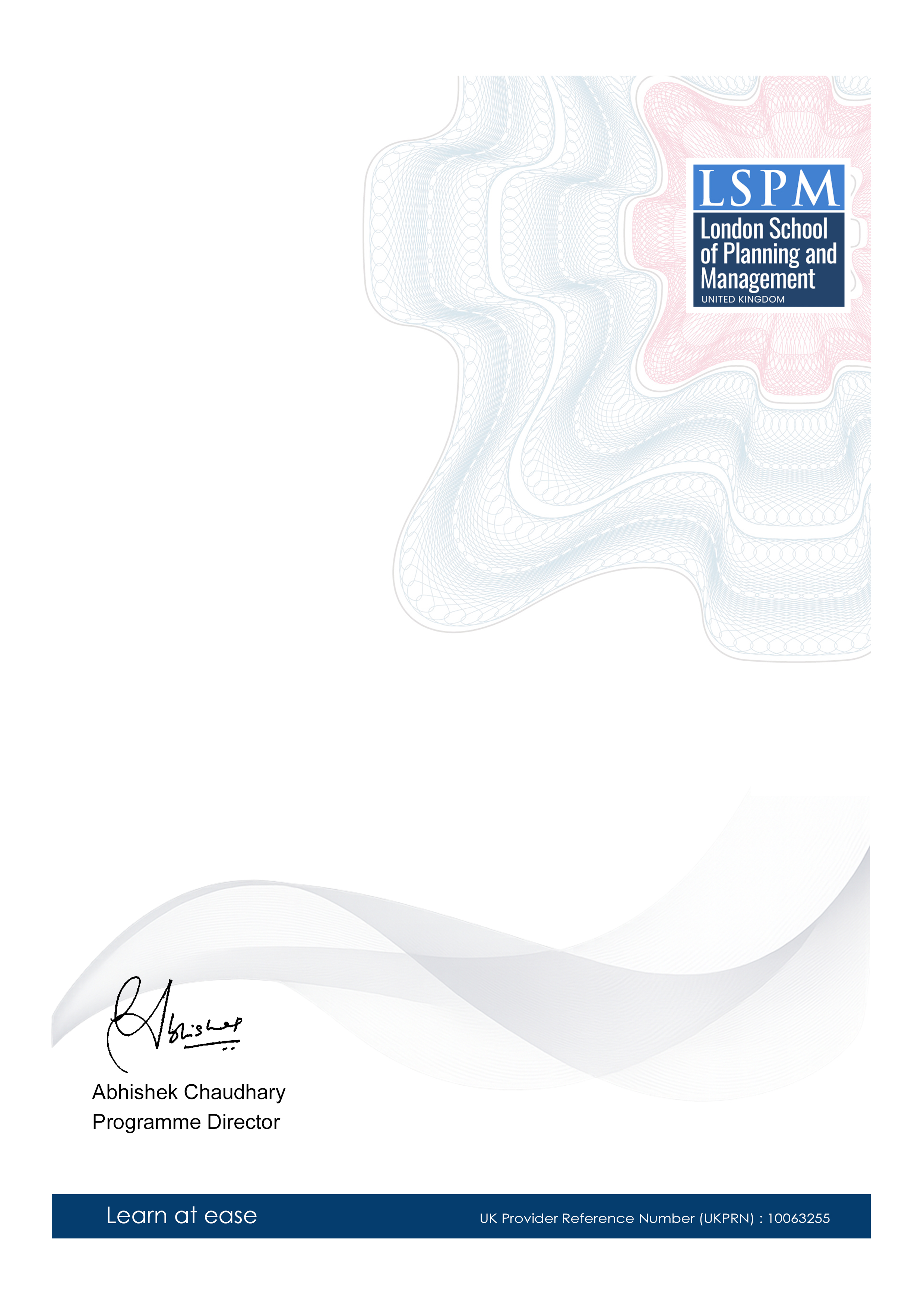Graduate Certificate in Humanitarian Relief Strategies
-- viewing nowThe Graduate Certificate in Humanitarian Relief Strategies is designed for professionals seeking to advance their knowledge and skills in managing humanitarian crises. The program provides a comprehensive understanding of the complexities involved in delivering aid effectively, including disaster response, emergency management, and conflict resolution.
3,348+
Students enrolled
GBP £ 149
GBP £ 215
Save 44% with our special offer
About this course
100% online
Learn from anywhere
Shareable certificate
Add to your LinkedIn profile
2 months to complete
at 2-3 hours a week
Start anytime
No waiting period
Course details
Career path
Graduate Certificate in Humanitarian Relief Strategies
The Graduate Certificate in Humanitarian Relief Strategies is a comprehensive program designed to equip students with the knowledge and skills necessary to effectively manage and coordinate humanitarian relief efforts. This program is ideal for individuals seeking to pursue careers in international organizations, NGOs, and government agencies involved in disaster response and recovery.
Career Roles
Upon completion of the program, graduates can pursue various career roles such as:
- Humanitarian Coordinator: Responsible for overseeing all aspects of humanitarian relief efforts, including planning, implementation, and evaluation. They work closely with local authorities, NGOs, and international organizations to ensure effective delivery of aid.
- Emergency Response Manager: Oversees the response to emergency situations, including natural disasters, conflicts, and health epidemics. They coordinate with various stakeholders to ensure timely and effective delivery of relief services.
- Disaster Risk Reduction Specialist: Focuses on reducing the impact of disasters by identifying risks and vulnerabilities, developing mitigation strategies, and promoting resilience among affected communities.
- Humanitarian Information Officer: Responsible for collecting, analyzing, and disseminating information related to humanitarian crises. They ensure that accurate and timely information is available to aid workers, decision-makers, and affected communities.
Job Market Trends
The job market for humanitarian relief professionals is expected to grow in the coming years due to increasing frequency and severity of natural disasters, conflicts, and health epidemics. According to a recent report by the International Federation of Red Cross and Red Crescent Societies (IFRC), there is a significant gap between the demand for skilled humanitarian professionals and the supply, highlighting the importance of specialized training programs like the Graduate Certificate in Humanitarian Relief Strategies.
Salary Ranges
Salaries for humanitarian relief professionals vary depending on factors such as experience, location, and organization type. However, according to Payscale, the average salary for a Humanitarian Coordinator in the UK is around £50,000 per year, while Emergency Response Managers can earn an average of £40,000 per year. Disaster Risk Reduction Specialists and Humanitarian Information Officers may earn slightly less, with average salaries ranging from £30,000 to £40,000 per year.
Skill Demand
Skills in demand for humanitarian relief professionals include project management, crisis management, communication, negotiation, and cultural sensitivity. Proficiency in languages such as Arabic, French, and Spanish is also highly valued, as is experience working in diverse cultural contexts.
Entry requirements
- Basic understanding of the subject matter
- Proficiency in English language
- Computer and internet access
- Basic computer skills
- Dedication to complete the course
No prior formal qualifications required. Course designed for accessibility.
Course status
This course provides practical knowledge and skills for professional development. It is:
- Not accredited by a recognized body
- Not regulated by an authorized institution
- Complementary to formal qualifications
You'll receive a certificate of completion upon successfully finishing the course.
Why people choose us for their career
Loading reviews...
Frequently Asked Questions
Course fee
- 3-4 hours per week
- Early certificate delivery
- Open enrollment - start anytime
- 2-3 hours per week
- Regular certificate delivery
- Open enrollment - start anytime
- Full course access
- Digital certificate
- Course materials
Get course information
Earn a career certificate

